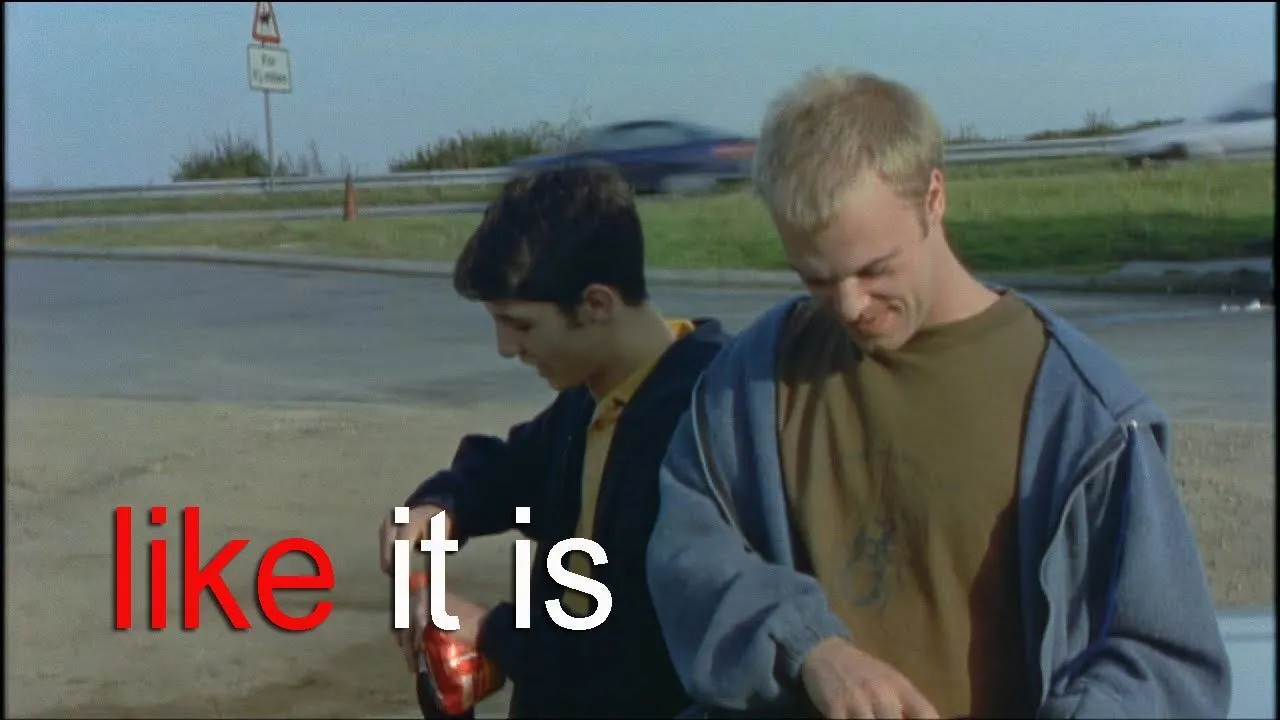Like It Is (1998)
Like It Is is a heartfelt drama that masterfully captures the complexities of life, love, and personal growth. Directed with a keen sense of emotional depth, the film offers an intimate exploration of the struggles and joys of a group of individuals from different walks of life. Set against the backdrop of modern-day urban America, it’s a story about the raw, unfiltered realities of navigating relationships, facing difficult choices, and finding one’s way in a world that often feels out of control.

Plot Summary: The movie centers on three main characters: Sarah, a talented but struggling writer trying to make a name for herself in a competitive industry; Michael, a successful but emotionally distant lawyer with a fractured past; and Grace, a single mother who has dedicated her life to raising her son while working multiple jobs. Each of them is at a crossroads in their lives, wrestling with personal demons, unfulfilled dreams, and complicated relationships.
Sarah, while deeply talented, is constantly doubting herself and her place in the world. Her romantic relationship with Michael, who is also dealing with a painful divorce, becomes a central focus as they try to navigate the growing emotional distance between them. Meanwhile, Grace, working tirelessly to provide for her son, has to confront her own unresolved issues about her past, her self-worth, and the pursuit of happiness.
As the story unfolds, the lives of these three characters intertwine in unexpected ways. Their shared experiences of love, disappointment, and hope draw them closer, revealing the intricacies of human connection and the beauty found in even the most difficult of circumstances. The film beautifully examines how people confront their most profound fears and desires, while also shedding light on the importance of accepting and embracing one’s imperfections.

Artistic Analysis: Visually, Like It Is has a grounded, naturalistic aesthetic that complements the emotional weight of its themes. The cinematography is unobtrusive, focusing on the expressions and body language of the characters rather than flashy visuals. This minimalist approach allows the story to take center stage, making the viewer feel more connected to the characters and their journeys. The muted tones and intimate framing help convey a sense of realism and authenticity, drawing the audience into the characters’ world.
The direction is both sensitive and deliberate, with the pacing allowing the characters’ growth and transformations to unfold naturally. While the film includes moments of tension and conflict, it also takes its time to show the small, beautiful moments of life—the fleeting smiles, the quiet moments of introspection, and the tender exchanges that define human relationships.
The score, which is understated yet poignant, further enhances the emotional atmosphere. The music complements the quiet tension and the moments of catharsis, subtly weaving through the narrative to underscore the emotional beats without overwhelming the story.

Performances: The performances in Like It Is are a standout element of the film. The cast delivers nuanced and deeply felt portrayals that make the characters come alive. The actress playing Sarah is particularly remarkable, capturing the vulnerability and complexity of a woman struggling to find her voice in a world that seems to demand more than she can give. Her portrayal of self-doubt and emotional growth is heart-wrenching and relatable.
The role of Michael, portrayed by a seasoned actor known for his ability to play emotionally complex characters, brings a quiet intensity to the film. His portrayal of a man weighed down by past mistakes and the inability to open up emotionally adds a layer of depth to the story, making his eventual journey toward healing all the more impactful.
Grace’s character, played by an actress with a powerful presence, offers a grounded and heartfelt performance. Her portrayal of a mother trying to balance love, sacrifice, and personal fulfillment is nothing short of moving. As the story explores her own journey of self-discovery, her relationship with her son and the realization that she must let go of the past in order to embrace a brighter future is both inspiring and deeply emotional.

Emotion: Like It Is is a film that doesn’t shy away from exploring the complexities of the human condition. It’s not just about romantic love but about all types of relationships—the ones that shape us, challenge us, and force us to grow. The emotional depth of the film lies in its exploration of vulnerability and the inherent messiness of life. The characters make mistakes, face difficult decisions, and sometimes falter—but the film encourages the audience to believe in the possibility of change and redemption.
The movie doesn’t offer easy answers or neat resolutions, which makes it feel even more authentic. It emphasizes the importance of embracing the process of growth, even if it’s uncomfortable, and acknowledges that healing and happiness are often the result of learning to accept ourselves as we are, flaws and all.

Final Thoughts: Like It Is is a powerful and introspective film that captures the struggles and triumphs of everyday people trying to find meaning in their lives. With its grounded performances, thoughtful direction, and poignant narrative, it stands as a tribute to the resilience of the human spirit. It’s a movie that resonates on a deeply personal level, offering viewers a chance to reflect on their own journeys, relationships, and the moments that shape who they are.
While it may not be the typical high-octane drama, its quiet beauty and raw emotional power make it a film worth watching. Like It Is leaves a lasting impression, reminding us that even in the most ordinary of lives, there is profound depth, complexity, and beauty to be found.